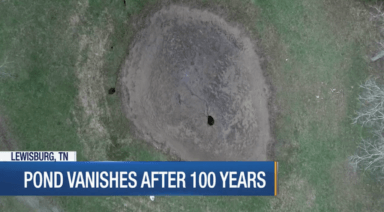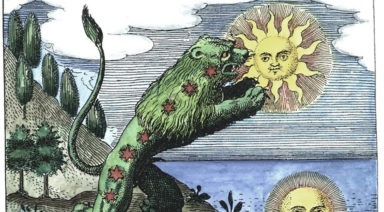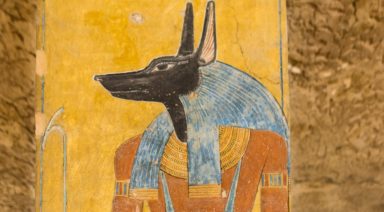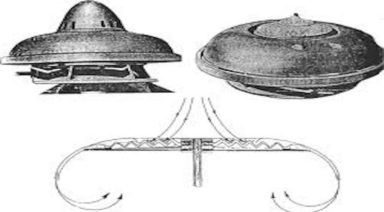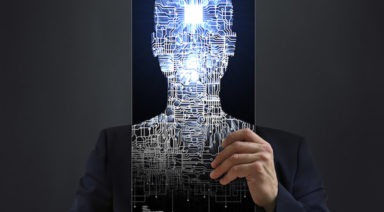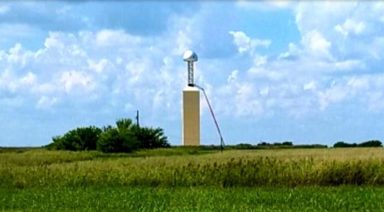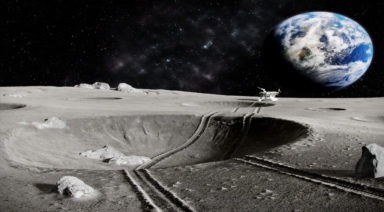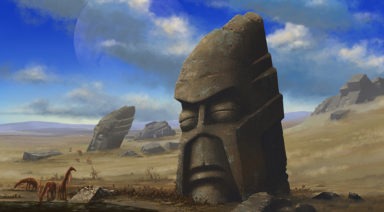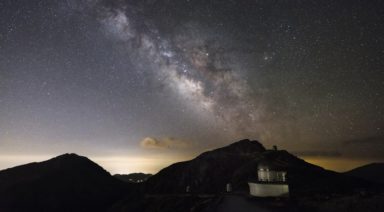The Truth of Thanksgiving; We’ve Been Socially Programmed
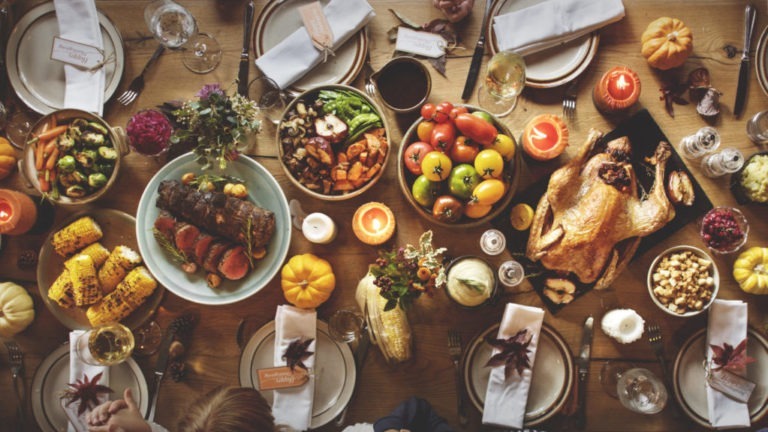
Part of growing up in the United States is discovering that some of the fairy tales you were told about the holidays as a child aren’t real, like the Easter Bunny and Santa Claus. That disappointment or feeling of betrayal, is a fleeting and innocent wake-up call among many more to come in life. But the biggest holiday fairy tale is one that has been used, not just to entertain the youthful imagination, but instead for social programming and the whitewashing of our history; and that is the truth of Thanksgiving.
We’ve All Been Socially Programmed
Slowly, but surely, we’re becoming more aware of the extent to which we’ve been socially programmed throughout our lives. This programming comes from many channels and is meant to give us our identities, distinguish ourselves from others, and who we should aspire to be. Though many of us are starting to realize a lot of these social constructs are used to divide and indoctrinate us into consumers, political constituents, and anything that serves to benefit the powers that be.
The Thanksgiving holiday could not be a more fitting example of the historical and continued use of subversive social programming that has been intrinsically injected into our culture. Thanksgiving is supposedly a time of reflection, gratitude, and giving to those in need. A time when we remember the struggles and sacrifices made by the founders of our country and how they were able to break bread with the Native Americans some 400 years ago.
So, we celebrate the blessings we’ve been given in life by sitting down to enjoy a meal, spending time with loved ones, and dozing off while watching football. And the next morning, many will rise before the sun to get in line for those Black Friday deals, hoping not to get injured in the apotheosis of consumer greed.
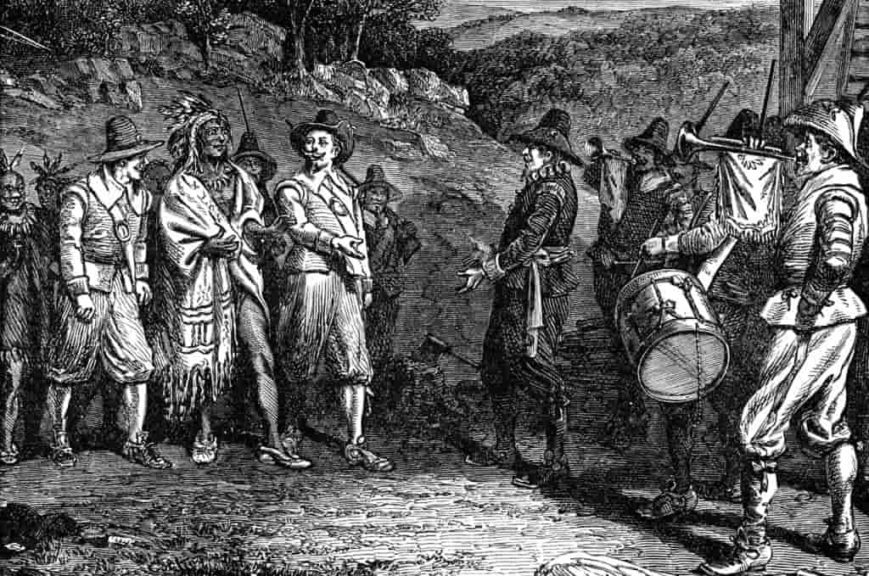
But the truth is, the majority of our society has been indoctrinated to fit this mold and is unaware of the historical truth of Thanksgiving and what it has evolved into. Our perspectives have been socially programmed over the course of the past four centuries to fit the narrative of the appropriate political zeitgeist. And while it has slowly evolved to satisfy the religious, social, and economic goals of the ruling elite, it continues to completely ignore the injustices against Native Americans. Isn’t it time to break free from this programming and redefine the holiday for its true meaning?
Whitewashing a Violent Holiday
By now, there is a greater awareness of the extent to which the U.S. was built through the subjugation of Native Americans. Columbus Day is slowly being erased from our calendars as a holiday that should no longer recognize a man whose legacy was distorted, making an imperialist murderer look like a noble pioneer. But while we’re at it, shouldn’t Thanksgiving be seen through the same lens?
Our perception of Thanksgiving, as many things learned in the dominant western curriculum, is Eurocentric, blatantly disregarding the truth behind the colonization of America. Today, there is no better example of the ironic juxtaposition of our perception versus reality, than on Thanksgiving Day in Plymouth, Massachusetts. There one can find a parade of locals sporting pilgrim attire and marching through the historic town, before their annual feast, while a large group of Native Americans are fasting and standing in protest on Cole’s Hill in a national day of mourning.
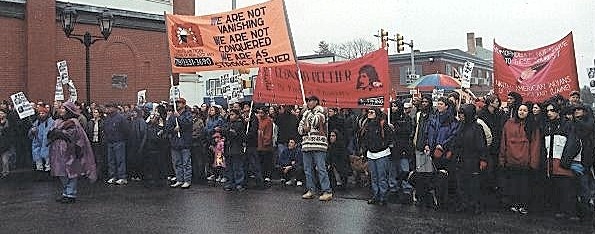
uaine.org
Started in 1970, these protests began when a local Wampanoag leader, Wamsutta, was invited by the Commonwealth of Massachusetts to speak on the 350th anniversary of the Pilgrim’s landing. He penned a speech detailing the pillaging of graves and enslavement of his people by the early settlers, but was prohibited from delivering it, being asked instead to read a revised version, which omitted anything inflammatory. Unsurprisingly, Wamsutta decided not to give his speech and began an annual protest.
While some know the truth of Thanksgiving, most of us have been socially programmed with a whitewashed narrative that purports of a harmonious feast between the Wampanoag Native Americans and the Pilgrims. In elementary school, we were made to act out this sanitized story in plays, create Indian headdresses, and don big brass belt buckles with pilgrim hats; we were indoctrinated with a misconstrued understanding of history. And who’s to say that the teachers even knew that they were spreading misinformation?
Some of us might remember being taught the name Squanto, the Pawtuxet Native American who helped the Pilgrims when they were dying from disease and exposure to the elements. What they failed to tell us, however was he had already been captured by a European sea captain, sold into slavery, escaped, and made his way back from England, yet still found it in himself to help out our immigrant forefathers in their dire need.
Our teachers would also leave out the part when, soon European settlers turned on the Wampanoag and other native tribes. Within a few decades, most natives would die at the hands of settlers if they weren’t already dying from smallpox they brought over. And shortly after the first Thanksgiving feast, settlers were literally giving thanks for the death of hundreds of natives after the Pequot Massacre of 1637, where 700 natives were brutally slaughtered.
But we must have been much too young at that age, to be told of this unfortunate series of events that happened so long ago. We live in much more civilized times today, where Native Americans are respected and their history and culture is honored. Right?
Perpetuating a Skewed Narrative
George Washington first proclaimed an official day of Thanksgiving in 1789 as a one-off holiday for citizens to pray and give thanks for the assembly of government, despite all of the opposition it had endured. But there was objection from secular members of Congress who saw it as a religious, European tradition they should distance themselves from. But it inevitably passed and Washington used it to tout his religious beliefs, while giving his constituents a pat on the back for establishing a successful government in the face of English despotism. Unsurprisingly, there was no mention of Native Americans.
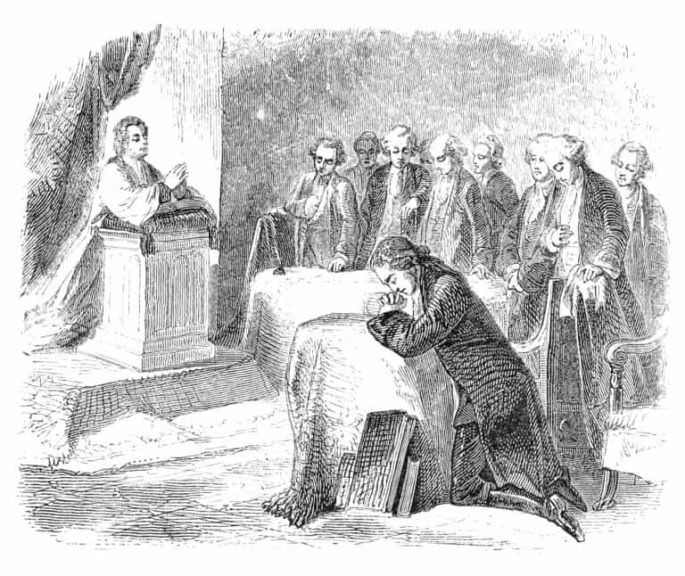
Nearly a century after Washington’s proclamation, Abraham Lincoln declared Thanksgiving an annual holiday to be celebrated on the last Thursday of November. At the time, the country was mired in the depths of the Civil War, struggling to maintain morale and a semblance of unity. He subtly mentioned a perceived threat from other nations that might see the country as weak in the midst of its turmoil, feeling the need to remind them at least they hadn’t been invaded by a foreign entity.
Again, failing to make any mention of Native Americans, Lincoln used the holiday for political and religious capital, socially programming a reassurance into the minds of his war-torn nation, claiming that he still had everything under control. Though it’s unclear how Lincoln truly felt about the natives, he was responsible for ordering the largest mass execution in U.S. history, hanging 38 Dakota Sioux. He never persecuted Confederate generals this way.
Today, Thanksgiving continues to be celebrated for purposes that largely ignore its true historical context with indigenous people. And while the travesty of a story which happened hundreds of years ago can’t be changed, our continued lack of attention to the inherited problems of natives can.
The Modern Treatment of Natives
Large corporations and the federal government have continued their interminable encroachment on indigenous land to this day. From the Sioux’s Black Hills where Mount Rushmore was carved, to the Standing Rock Reservation where the Dakota Access Pipeline was planned to be built, there has been no mercy in the unabashed land grabs we continue to take from these people.
A concerted, conscious awakening needs to occur to institute this change. Even if one is aware of the horrors our ancestors committed against natives, are we aware of the extent to which they face the same inequality today?
Native Americans are killed at a higher rate in the hands of police than any other racial or ethnic group, and the rate of suicide in Native American communities is 190 percent higher than the general population. Meanwhile, the unemployment rate for Native Americans in the U.S. is double the national average, sometimes as high as 85 percent in some communities.
These are just a few of the laundry list of facts that outline the struggles faced by indigenous people today. If we claim to care about these issues, how do we have the gall to celebrate Thanksgiving?
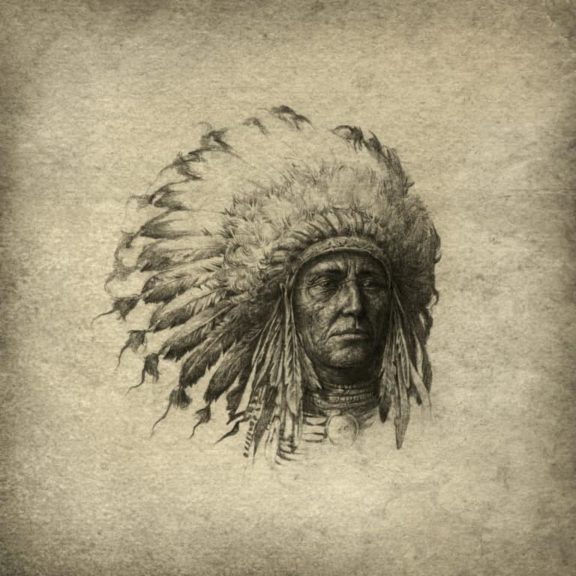
There are a multitude of holidays across many religions that are dedicated to atonement and mourning; shouldn’t Thanksgiving be one of those days? Of course, we can get together to be with loved ones and share a meal, but the focus should be on the sacrifices made by Native Americans in the past and present, while also celebrating their culture and history.
Using A False Narrative to Drive Capitalism
We would be remiss not to mention how the modern social programming of Thanksgiving has resulted in a holiday designed to perpetuate our current system of consumerism and corporate greed. Black Friday has practically become tied to Thanksgiving, and those who aren’t capitulating to the retail madness are likely continuing a binge of overeating and watching football.
In our society, we’ve been programmed to be good consumers. Capitalism has become our mantra, our religion. When there is a tragic event in western society, we’re told to go shopping. Shopping boosts the economy and it boosts national confidence, so be a good American and get out there and spend!
People camp out, waiting in line to be the first into a store on Black Friday in order to get the best deals of the year, and now some stores start their Black Friday deals even earlier, on Thanksgiving Day itself. The grip of capitalism is impinging on a holiday whose original intent was already skewed in the first place, with many either skipping the meal entirely or eating dinner while standing in line.
Is this an intentional attempt to gloss over the history of this holiday, or merely an inevitable consequence of capitalism? We’ve already been programmed to view history through a sanitized scope, while also having been programmed to be obedient consumers, why not just combine the two? What better way to assuage our corporate overlords, and placate the masses?
But this doesn’t have to be the case. We can recognize our social programming, think for ourselves and raise our collective consciousness. This Thanksgiving let’s make an effort to realize what this holiday should really be about. And while you’re arguing with relatives over hot political topics like tax reform and illegal immigration, take a moment to remember who the real illegal immigrants were and how we’ve been socially programmed to think otherwise.
Was Marilyn Monroe Killed to Prevent UFO Disclosure?

When famous model and film icon Marilyn Monroe was found dead in her home in 1962, the official autopsy reports labeled her death a barbiturate overdose, and likely the result of suicide.
While Monroe had exhibited signs of depression and used prescription sedatives for years, her death came at the peak of her career and was a shock to millions. And rightfully so, as Monroe was closely connected to a number of powerful men, namely President John F. Kennedy.
A number of conspiracies abound around her death, including the possibility that she was murdered by either the CIA or the mob out of spite of President Kennedy. Others thought that (then) Attorney General Robert Kennedy, had her killed because she had incriminating evidence against the family that could have ruined their political careers and led to legal woes.
But there’s another theory behind her untimely death that stands out above the rest—one that involves disclosure.




